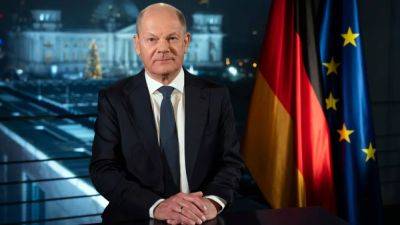Germany's Bundesbank warns of economic stagnation as trade war looms
Germany’s economy will contract this year and will hardly grow in 2025, according to new forecasts from Germany’s central bank - the Bundesbank.
National output is expected to shrink by 0.2% this year, down from the Budensbank’s prediction of 0.3% growth - delivered in June.
In 2025, output is set to increase by a meagre 0.2%, compared to the previously-forecasted 1.1%.
For 2026 and 2027, the Bundesbank forecasts growth of 0.8% and 0.9%.
While other nations are suffering from high borrowing costs, Germany’s economy has been doing particularly badly.
Due to its former reliance on Russian energy, the country was hit disproportionately by energy price spikes following the invasion of Ukraine.
A number of factors are making it difficult for the country to get back on its feet - including an ageing population, creaking infrastructure, and productivity-hampering red tape.
A decline in the Chinese economy has also hit growth in the year to date, with the Asian market representing a key market for German exports.
Germany’s global exports fell more than expected in October, according to data also published on Friday by the federal statistics office.
Exports fell by 2.8% compared with the previous month.
Exports to China decreased by 3.8% on the month, exports to the US were down 14.2%, and exports to EU countries dropped by 0.7%.
Political turmoil complicates the country’s economic situation, with snap elections called in February.
The so-called ‘traffic light’ coalition collapsed in Germany last month when Chancellor Olaf Scholz sacked his Finance Minister Christian Lindner - blaming a budgetary dispute.
The Budensbank also warned on Friday that politics further afield could come to bite Berlin.
If President-elect Donald Trump delivers on his







